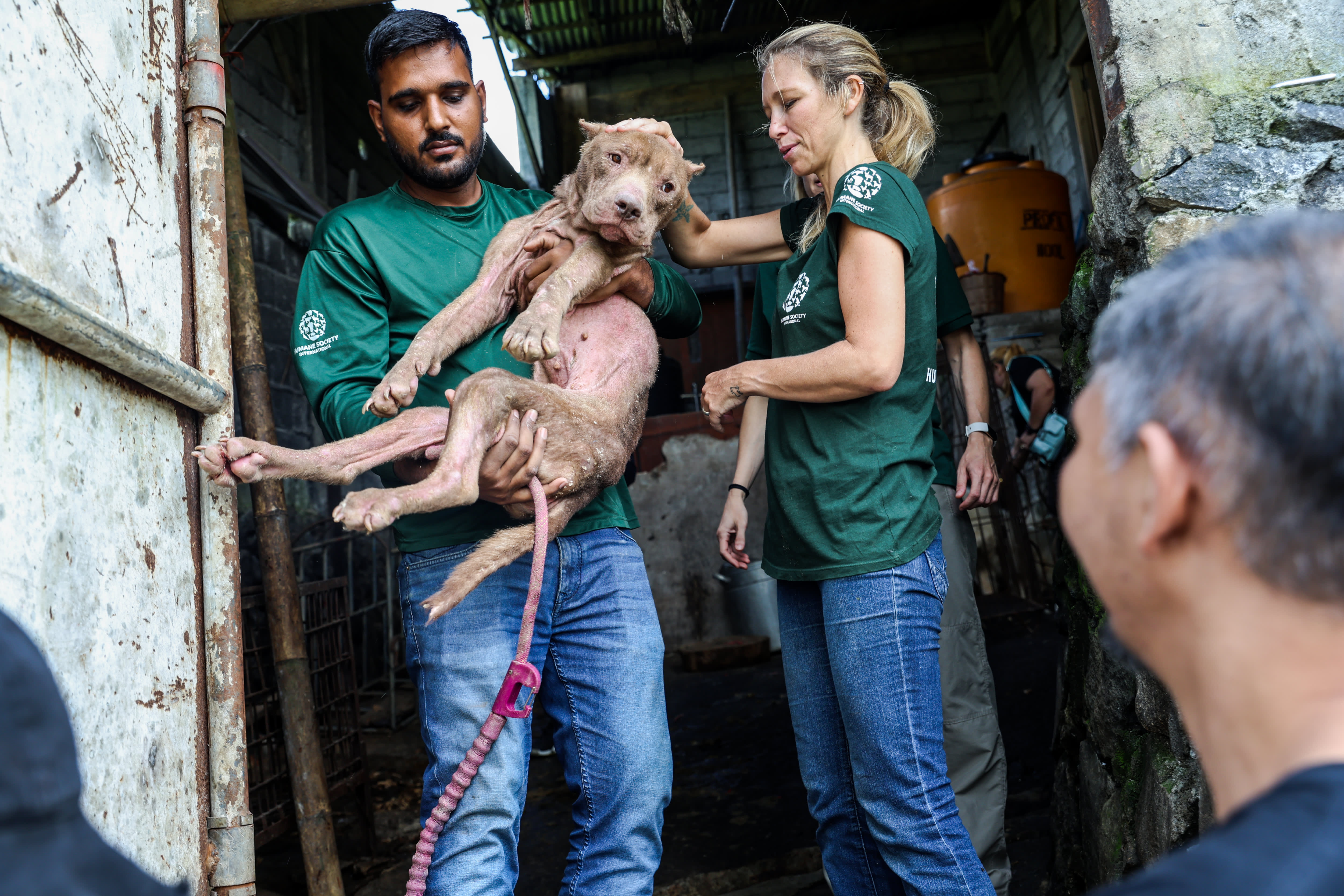South Korea’s parliament on Tuesday passed a landmark ban on production and sales of dog meat, as public calls for a prohibition have grown sharply over concerns about animal rights and the country’s international image.
Some angry dog farmers said they plan to challenge the bill's constitutionality and hold protest rallies, a sign of continued heated debate over the ban.
The bill would make slaughtering, breeding and sales of dog meat for human consumption illegal from 2027 and punishable by 2-3 years in prison. It doesn’t provide any penalties for eating dog meat.
Dog meat consumption, a centuries-old practice on the Korean Peninsula, is neither explicitly banned nor legalized in South Korea. Recent surveys show more than half of South Koreans want dog meat banned and a majority no longer eat it. But one in every three South Koreans still opposes a ban even though they don’t consume it.
Get top local stories in San Diego delivered to you every morning. >Sign up for NBC San Diego's News Headlines newsletter.
The National Assembly passed the bill by a 208-0 vote. It will become law after being endorsed by the Cabinet Council and signed by President Yoon Suk Yeol, considered formalities since his government supports the ban.
“This law is aimed at contributing to realizing the values of animal rights, which pursue respect for life and a harmonious co-existence between humans and animals,” the legislation says.
Recommended:
The bill offers assistance to dog farmers and others in the industry in shutting down their businesses and shifting to alternatives. Details are to be worked out among government officials, farmers, experts and animal rights activists.
Humane Society International called the legislation’s passage “history in the making.”
“I never thought I would see in my lifetime a ban on the cruel dog meat industry in South Korea, but this historic win for animals is testament to the passion and determination of our animal protection movement,” said JungAh Chae, executive director of HSI’s Korea office.
Farmers were extremely upset by the bill's passage.
“This is a clear case of state violence as they are infringing on our freedom to choose our occupation. We can’t just sit by idly,” said Son Won Hak, a farmer and former leader of a farmers’ association.
Son said dog farmers will file a petition with the Constitutional Court of Korea and hold demonstrations. He said farmers will meet on Wednesday to discuss other steps.
There is no reliable official data on the exact size of South Korea’s dog meat industry. Activists and farmers say hundreds of thousands of dogs are slaughtered for meat each year.
The anti-dog meat campaign received a huge boost from the country’s first lady, Kim Keon Hee, who has repeatedly expressed her support for a prohibition. She has become the subject of withering criticism and crude insults during demonstrations by farmers.
The legislation doesn't clearly specify how dog farmers and others in the industry will be supported after the ban, which will likely result in continued animosities, observers say.
“Dogs are different from cows, chickens and pigs," said Kim Myung-ae, a 58-year-old Seoul resident. "Why would you still eat dogs when they are now seen more as family-like pets than food?”
Another Seoul resident, Jeong Yoon Hee, disagreed, saying whether to eat dog meat is a matter of a personal choice and dietary culture. “Dogs are dogs, not humans,” she said.
___
Associated Press writer Jiwon Song contributed to this report.



